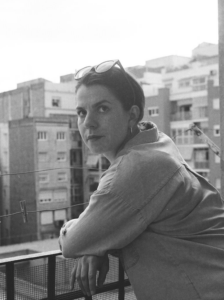SARA FREEMAN‘s arresting, lyrically economical Tides has been generating buzz from the likes of Time Magazine, The New York Times, and Lit Hub since it was released last year. The Guardian calls this fragmentary, feminist novel “an experimental study in grief.” But what does it mean to write a feminist novel, these days, and to dwell in your characters’ grief? And how do experimental writing forms intersect with feminism?
MELODY NIXON sat down with Freeman, her graduate-school colleague, to discuss Tides; its liminal setting; what it’s like when we hear our characters’ voices in our heads; the ways that novels might ruin our lives; and the anxiety “of near-constant potential narrative collapse” that Freeman navigated while writing this extraordinary debut.











